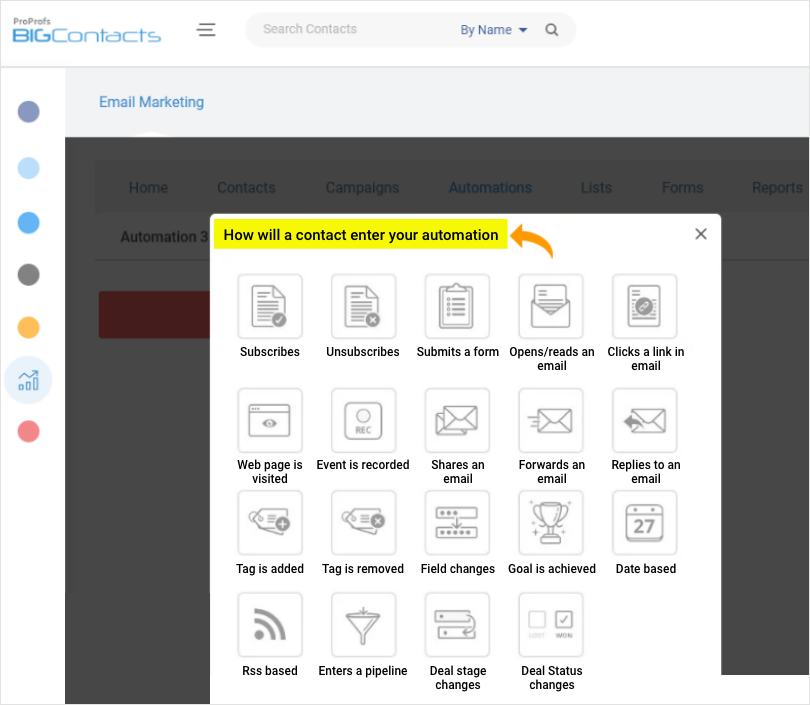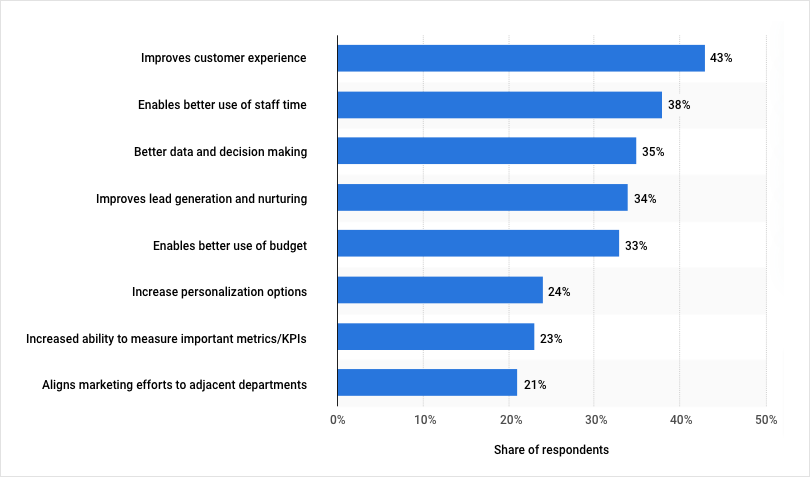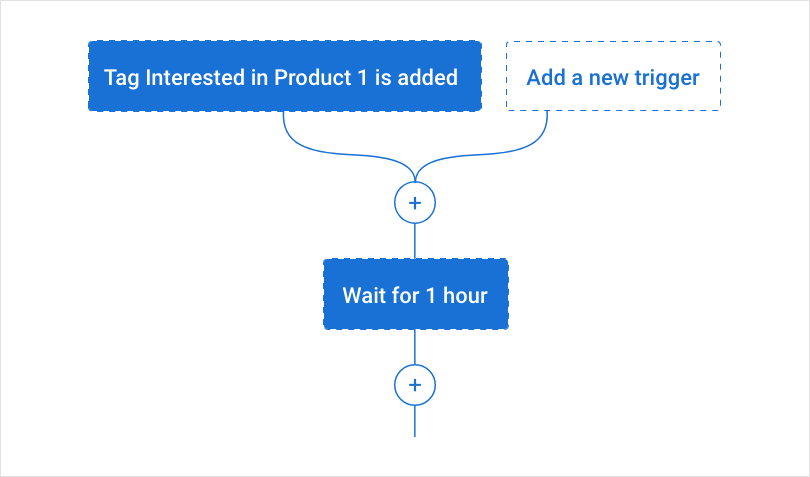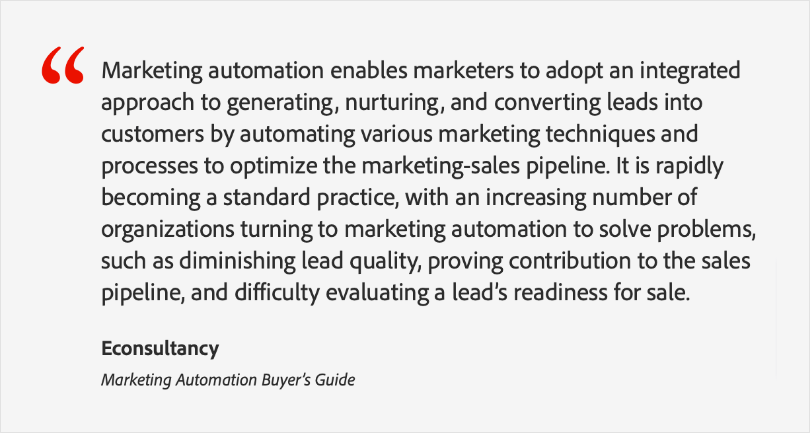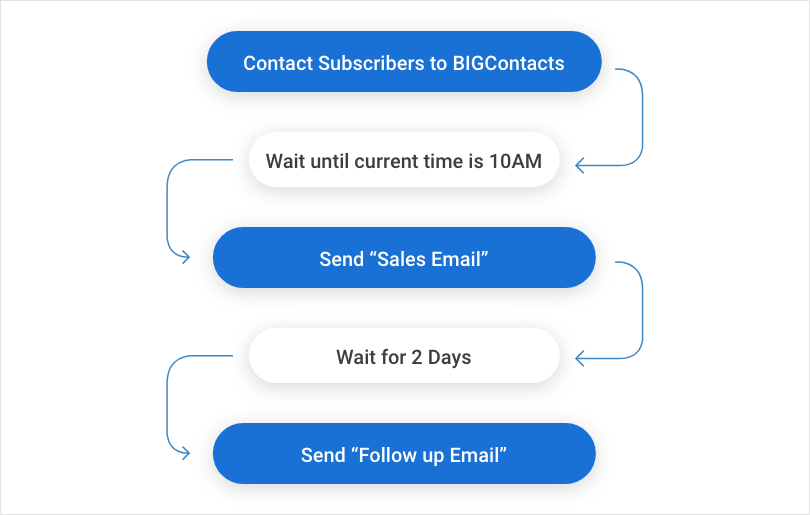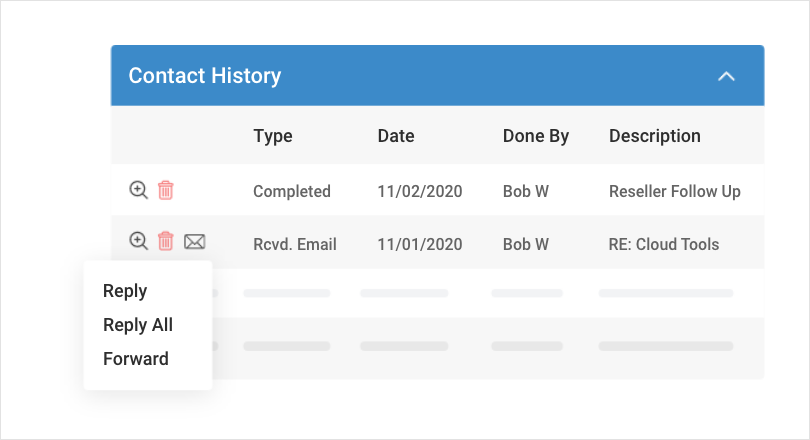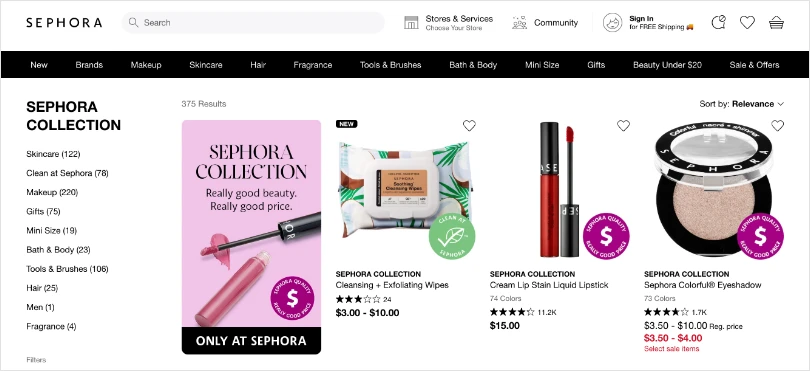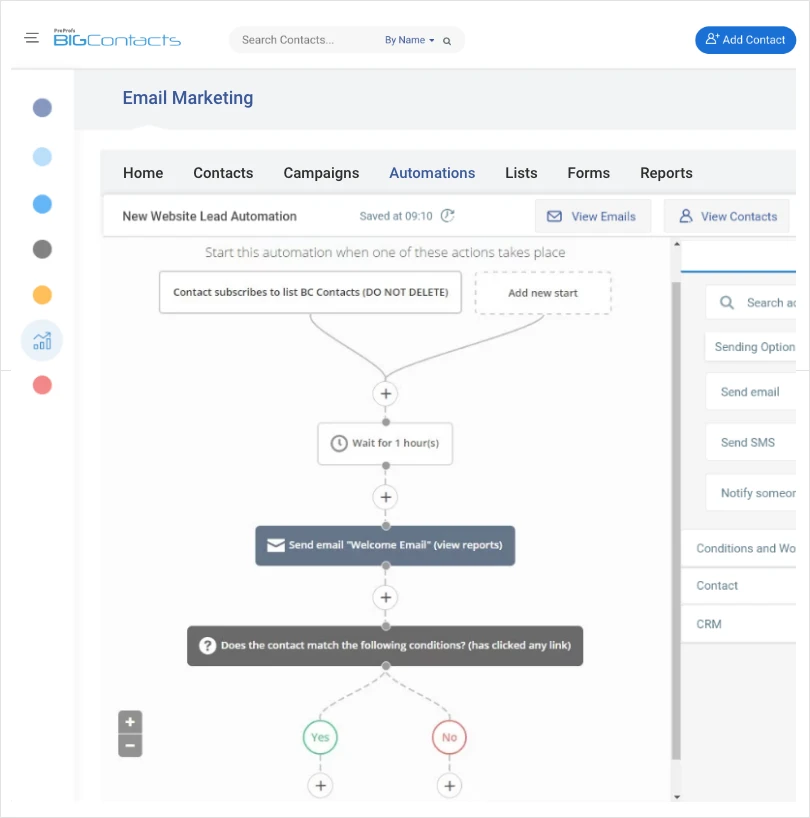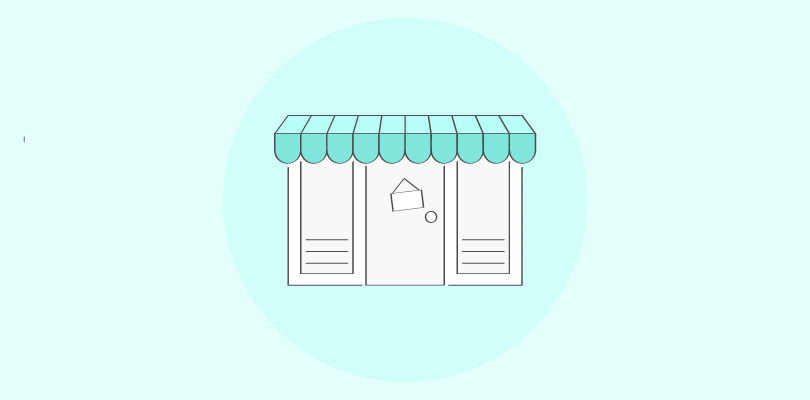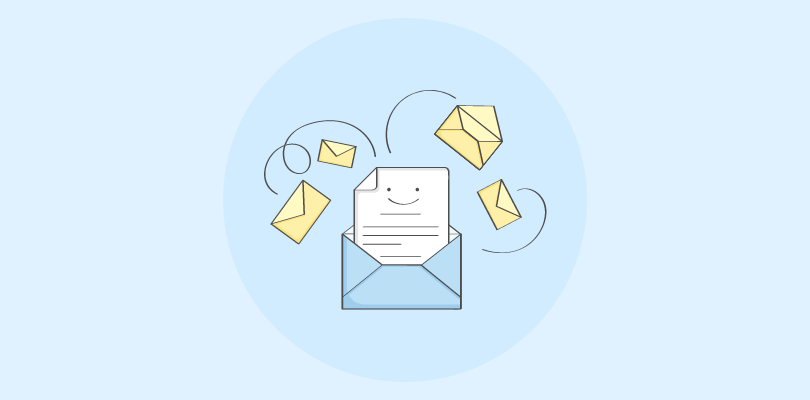Automation has proved its mettle in numerous business aspects. Whether it’s the sales process or customer service, automation can yield great rewards if implemented correctly.
But one area that it has especially stood out in is marketing.
Conventional marketing channels and activities no longer produce the results that businesses desire. Therefore, to uncover promising opportunities, more and more companies are moving towards marketing automation. This inclination comes as a result of the significant productivity boost that automation can provide.
From welcome emails delivered to prospects when they enter the sales cycle to personalized ads and recommendations, everything can be automated. To accomplish this, you need a cohesive marketing strategy and an automation tool that can drive value to your customers.
But what does marketing automation mean, and how can you implement it for your business?
In this blog, we strive to answer the questions that you may have about marketing automation and highlight the steps to create a comprehensive automation strategy for your enterprise. Let’s dive right into it!
In a Nutshell
- Marketing automation is the process of using software to automate repetitive marketing tasks like email campaigns, social media scheduling, and lead generation.
- The benefits of marketing automation include better lead generation process, highly personalized experiences, and more upsell opportunities.
- Defining clear goals, segmenting the target audience, and analyzing campaign performance will help you make the most out of them.
- You must also choose the right automation software to ensure the campaigns align with your business objectives.
What is Marketing Automation & How Does It Help?
Marketing automation refers to the use of technology to carry out marketing processes. It automates repetitive tasks like lead qualification, email follow-ups, social media interactions, etc., making it easier to run successful multifunctional campaigns.
Marketing automation can help businesses automate their advertising strategies for e-commerce and other businesses, such as social media advertising and paid search advertising. This can help businesses reach a wider audience and improve their conversion rates.
In addition to increasing efficiency by removing manual efforts, automation can also help you create a personalized marketing model, leading to increased sales and enhanced customer satisfaction.
You can define various triggers based on customer actions and their position in the buyer’s journey for your automation workflow. This will help deliver targeted messages across, at the most appropriate time.
According to Statista, an automated marketing system offers a range of benefits, such as:
Following are some of the most significant benefits of marketing automation.
Increased Organizational Efficiency
By automating repetitive tasks that take up a considerable portion of your marketing team’s time, you can free up time for more critical tasks and reduce human errors. Prioritizing important activities will provide you with more control over your business operations.
Create Meaningful Relationships
Automated marketing presents the most relevant data to customers at the right time, demonstrating your company’s willingness to enhance their overall experience. This leads to improved customer satisfaction and stronger relationships.
Automate Interactions
With email marketing automation, you can create a sequence of email design to be shared with the customers throughout the buying cycle. This enables you to stay connected with them and make continuous strides toward improving customer relationships.
Segment Customer Base
With such technology, you can divide your customer base into lists to drive more personalized engagement. Every interaction can then be personalized according to the target audience.
Capture Better Leads
With marketing automation tools, you can readily interact with prospects who visit your website, helping gather and qualify leads. Furthermore, you can manage and nurture these leads with automated follow-ups.
Craft Impeccable Experiences
A marketing automation solution offers the opportunity to get to know your customers better. You can use these insights to craft more personalized experiences that improve your customer retention levels.
How Does Marketing Automation Work?
The global revenue for marketing automation technology is estimated to reach 5.9 billion USD by 2023.
Marketing campaign automation utilizes software to get things done automatically, contributing to improved efficiency. It involves managing campaigns across multiple channels, enabling marketers to streamline their workflows, personalize messaging, and measure results.
Marketing automation involves a lot more than just sending out automated emails. Some of the aspects that it encompasses are:
- Lead qualification
- Lead nurturing
- Customer segmentation
- Sending drip emails
- Marketing campaign management
- Personalization
- Scheduling posts on social media
Marketing automation produces highly relevant content to capture and hold the attention of prospects. Instead of spamming users with irrelevant content, marketers can reach out to them more effectively with automation.
Automation can help discover what works well and use this data to modify customer engagement. It measures the evolving needs of leads by tracking interactions across all marketing channels. By incorporating effective prospecting methods and measuring behaviors, such as social clicks or page views, marketing automation can help you guide qualified leads down the funnel.
To design a marketing automation workflow, you have to identify what drives conversions for your business. Explore opportunities where automation can be implemented to increase the overall efficiency and productivity of your operations. Discover the right timing for connecting with your prospects to drive conversions.
Challenges for Marketing Automation
Despite its numerous advantages, there are several challenges that marketers face when trying to use marketing automation technology effectively. Some of these include:
Complexity
Marketing automation platforms can be complex and require certain technical expertise. Marketers with limited technical skills may struggle to use the platform effectively, leading to low adoption rates and underutilization of the software’s capabilities.
Data Quality
Marketing automation relies heavily on data. If the data is inaccurate or outdated, it can lead to failed campaigns, wasted resources, and low conversion rates. Data quality issues can arise due to inadequate data cleaning, integration, and segmentation.
Read More: How to Keep Your CRM Data Clean: 10 Best Practices to Get Started
Lack of Personalization
While marketing automation enables personalization, marketers may find it challenging to create tailored messaging that resonates with each prospect or customer. This can be due to limited data, inadequate segmentation, or an inability to craft effective messaging.
Overreliance
Marketing automation can create a false sense of security and cause significant dependance on automated processes. This can lead to missed opportunities, such as failing to engage with high-value leads or customers who require a more personalized touch.
Inadequate Content
Marketing automation requires a steady stream of content to engage prospects and customers. However, marketers may struggle to create high-quality content consistently, leading to ineffective campaigns and decreased engagement.
Ineffective Strategy
Marketing automation should be part of a broader marketing strategy. However, some organizations implement marketing automation without a clear strategy, leading to disjointed campaigns, inconsistent messaging, and low ROI.
Resistance to Change
Adopting marketing automation requires a shift in mindset and processes. Some marketers and organizations may resist change, leading to slow adoption rates and underutilization of the software’s capabilities.
6 Tips for Successful Marketing Automation
Marketing automation helps grow your revenue and maximize resource utilization.
However, to get the best results from your marketing workflow automation, you must follow certain best practices:
1. Know Your Target Audience
Effective audience research is critical for successful marketing automation efforts.
You need to have a clear picture of who you are selling to and what they are expecting. This can also help segment your customer base. Your automation efforts can significantly benefit from the buyers’ personas because you will only be offering content that is relevant to that audience group.
2. Define Goals
Before beginning with automation, you must understand what you want to accomplish from it. Integrating goals into your automation strategy can provide you with the following benefits-
- Clearly define necessary actions for a lead to move through the automation cycle.
- Track milestones to measure the performance of your marketing campaigns. Identify various roadblocks in automation and eliminate them.
- Push prospects through the various stages of the marketing campaigns by tracking fulfilled goals.
- Save time, remove redundancies, and increase the overall effectiveness of your marketing campaigns.
3. Find the Right Time
If your business falls under any of the criteria mentioned below, it may be the right time for you to take up automation:
- You have a flow of leads from various marketing areas.
- Your sales team is feeling overwhelmed with the task of following leads down the funnel.
- You have an efficient, cohesive marketing message you wish to convey in an organized, multi-pronged approach.
- You want a better way of tracking all marketing channels with speed and accuracy.
- You want a way to center your marketing message around the person at the other end of your communication in a highly interactive and engaging way.
4. Draft a Workflow
Once you have discovered the various areas where automation can be applied, you need to create a consistent workflow that can be adopted for marketing automation.
Include specific triggers that will move the leads through the marketing funnel. You can divide your automation workflow into three components, including pre-conversion, engagement, and post-purchase automation activities.
Keep in mind what the customers expect from you at every stage of the buying process, and use this information to create your strategy. Primarily if you work on AI marketing, where there’s a lot of automation, keeping the human factor is crucial.
5. Implementation
Once your email automation workflow is ready, it’s time for its implementation.
You need to pick a marketing automation platform that is simple, customizable, and scalable. Consider your business objectives when choosing the automation platform to ensure seamless implementation of your marketing strategy. The tool that you choose should support the features that you wish to integrate with your marketing automation. These could include:
- Ad management
- Email tracking & attribution
- Lead qualification & nurturing
- Real-time updates
- Customer segmentation
- Third-party integrations
Since choosing the right automation tool is a decision that can significantly affect your business’s profitability, it is crucial to allocate adequate time for making the selection.
6. Monitor Results Regularly
Your email marketing automation strategy should be continually evolving. Your users’ needs and your business processes are constantly changing. Therefore, you need to fine-tune your strategy to keep it aligned with your objectives and ongoing marketing trends. This is critical for conversion rate optimization.
Track various metrics to determine your marketing campaign’s performance and make the changes required to maximize effectiveness.
Types of Marketing Automation
There are several ways to incorporate automation into your marketing workflow. The following are the most significant types of marketing automation that you can consider for your business.
1. Email Marketing Automation
The most common way to implement marketing automation into your business is to use drip emails. Moreover, automated emails generate 320% more revenue than non-automated ones. With email automation, you can automatically send targeted emails to your customers at the right time, enhancing their overall experience.
2. Lead Generation Automation
Another crucial aspect of marketing automation is lead generation. Use it to capture leads from various sources such as SaaS landing pages, webforms, and chatbots. It also involves qualifying leads and routing them to the right sales representative in time.
3. Sales Funnel Automation
With automated sales funnel management, you can engage and nurture your leads effectively, ensuring their conversion. It involves various stages of the sales process, spanning from acquisition to closing. You can also track user behavior and automatically use this data to optimize your business messaging.
4. Marketing Campaign Automation
This involves using technology to automate various marketing aspects, such as social media engagement and customer segmentation. It helps you save time and resources while delivering more targeted messages at scale. Engage effectively with your audience by leveraging automation tools efficiently.
2 Best Examples of Effective Marketing Automation in Action
Let’s take a look at some examples of marketing automation strategies that you can learn from.
1. SmartBear Software
SmartBear Software benefitted from automation and grew its lead volume by 200%. The company successfully used marketing automation software to run personalized email campaigns and enhance its lead nurturing endeavors.
2. Sephora
Sephora used Smart Shopping campaigns that enabled it to reach the right people, with the right message, at the right time. It included automating aspects such as prospecting and remarketing, leading to 20% higher conversions.
How Can Marketing Automation Software Help?
To make automation work for your business, you need robust software that enhances the overall effectiveness of your marketing efforts.
Such an application can help achieve your marketing goals by streamlining and automating tasks that would otherwise require considerable manual effort. This can free up employees to focus on other essential business areas, such as product development or customer service.
A robust marketing automation system will enable you to:
- Organize contact data in one place to personalize your communication and build stronger customer relationships.
- Define custom triggers for your workflows, so you can keep your marketing campaigns running flawlessly.
- Schedule and keep track of upcoming campaigns.
- Generate detailed reports to make data-backed decisions and optimize your overall strategy.
Read the Benefits of Marketing Automation
Marketing automation facilitates omnichannel and personalized engagement, helping grow your bottom line. It gets rid of unsolicited emails and lets customers get through the buying journey without unnecessary disturbances.
A vital component of any successful marketing automation strategy is a powerful marketing tool. Whether it’s automating follow-ups or tracking the performance of different types of marketing automation campaigns, you need a tool that aligns with your requirements.
Use a robust automated marketing solution such as BIGContacts to drive personalized campaigns across multiple channels. Such powerful software will enable you to visualize, deploy, and manage your automated campaigns, ensuring that they stand in your good stead.
Frequently Asked Questions
Can marketing automation be used for event marketing?
Yes, marketing automation can be used for event marketing. Automated emails can be used to promote the event, confirm registrations, and sed out reminders.
Additionally, information regarding the event can be shared on social media and targeted ads can be used to reach the right audience. After the event, follow-up emails and surveys can be sent to gather feedback and drive future engagement.
How can you optimize your marketing campaigns for mobile devices?
In order to optimize your marketing campaigns for mobile devices, you must:
Use a mobile-responsive design
Include visual elements
Keep your messaging concise
Use mobile-friendly CTAs
Optimize for local search
Experiment with A/B testing
Analyze campaign data
FREE. All Features. FOREVER!
Try our Forever FREE account with all premium features!

